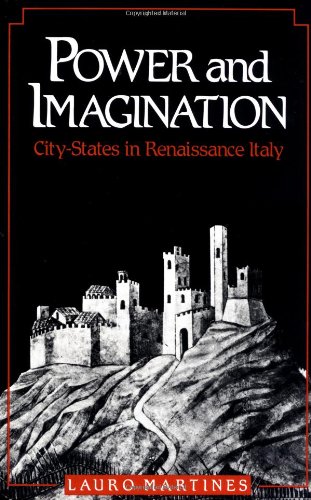This book was a great price and copy. It was easy to understand and has a very easy vocabulary.
Book probably makes a good point, but it is extremely dry and hard to read (yes even for a history novel). The author constantly jumps between different time periods and throws names and facts at the reader without really ever explaining in depth of what they are.
Martines devotes himself to 2 themes. The first is Power; the history of the distinctive political culture of Italian city states.
I'm happy to endorse the points made by 'Rabid Bookfiend', but just three stars is mean by normal Amazon review standards. Collin76's points also indicate something of the richness of this book's subject matter.
In Power and Imagination, Lauro Martines argues that the Italian Renaissance had two stages with the second building upon the first. "In the first stage, social energies--economics, politics, a vibrant demography--were primary and foremost; in the second, the lead went to cultural energies" (332).
Originally published in 1979, Martines's study of the rise and fall of the city-states in Italy, especially of its cultural manifestations (literature, art, architecture, political theory, and the philosophy of humanism), has for the most part withstood the test of time. The volume is not really an introductory survey for lay readers, nor is it a scholarly monograph.
This book is perhaps the definitive intellectual work on power relationships within Renaissance Italy. Power and imagination in the City-States formed in a reciprocal relationship.
One of the best books I've read for one of my classes while doinbg my BA in History. It's magnificent and there's so much you learn from the middle ages and renaissance not just from Italy but in general like where the author describes the repercusions shift from power in different sectors affected the rest of Europe, primarily the cloth industry and agriculture.
I thought that this was a decent book on Renaissance Italy. Since I am not a specialist in that area, I can't really assess it properly.
